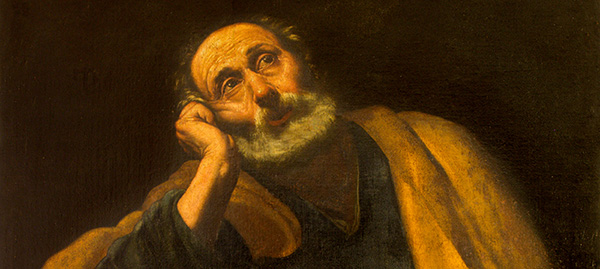
V/ I will turn to you O God,
R/ to God who gives joy to my youth
V/ Give me the Wisdom that sits by your throne;
R/ that I may be counted among your children
Lord, in your all-providential plan, you have led me to this moment to rediscover me in your Word and Wisdom. Aid me to make this time of meditation and prayer enriching, transforming, and liberating for my well-being and others. Amen!
5TH SUNDAY IN ORDINARY TIME, YR C
9th February 2025
Isaiah 6:1-8; Psalm 138(137):1-5; 1 Corinthians 15:1-11; Luke 5:1-11
If we read today’s gospel in the light of our first reading I think we are invited to consider the nature of the holiness that is required of Isaiah and Peter. What might be said to be the prerequisites? Is there any message here about the kind of prayer associated with such holiness?
Both Isaiah and Peter had an experience of God as the Holy One; meeting him reveals to them their own unlikeness to him and their own sinfulness is exposed. However, although Peter sees his unworthiness we can see in his response two positive, interlinked attitudes, of obedience and of faith. Peter is a skilled and experienced fisherman. He could so easily have scorned Jesus’ instruction and relied on his own judgment but he doesn’t. He acts with humility, not standing on his own experience and sense of worth. Like Mary in the Annunciation, he acknowledges his surprise at what is asked of him but is willing to set his assessment and experience aside. “At your word, I will let down the nets” could be seen to echo Mary’s “Let it be”. Neither can really grasp this contradiction to their experience but both surrender in obedience.
The root of “to obey” is to listen, to heed the voice of someone who has a call on us. Think about how the disobedience of Adam and Eve stems from not listening to and heeding what God asks of them, how Adam hides from God when he calls to him. To Peter Jesus is “Master” so he sets himself aside, listens and acts accordingly. And this is, too, an act of faith, an act of trust that Jesus will not ask of him something useless. He trusts that his Master knows what he is doing, even if he, Peter, does not. And the outcome brings him to the experience of compunction.
So haven’t we identified here four prerequisites, four virtues, that enable Peter to be an apostle: humility, compunction, faith, and obedience? And these are not super-special attributes, exclusive to Peter, but the fundamental habits of mind, heart and spirit required of every Christian, – habits that make each of us, in our own way, apostles.
But one sentence in our reading suggests another vital element in the life of an apostle – prayer. “Put out into the deep” is what is asked of us in any prayer that is contemplative in spirit. We are asked to put out into the deep of God which will also take us into the depths of our heart, where God dwells, hidden. Often the dryness and absence of any insight or gratification within it can lead us to say with Peter “We have toiled all night and caught nothing”. And Peter’s response of obedience and faith is asked of us, too. We are asked to persist in entering into our inner room. While our “common sense” and desire for “success” would lead us to abandon the effort for something more useful, we are asked to set aside our own experience and expectations.
There is one difference, however; Peter’s obedient faith yields an immediate and abundant response. With us it is rarely so. Humility, compunction, obedience and faith in seeking him within leave us feeling God has gone absent without leave. In this situation, John of the Cross comes to our help. He assures us that God is never absent, whatever spiritual state we are in (SC1:8) but insists that God is hidden within and so we, too, must be hidden from ourselves, from awareness of what is happening within, from the gratification this might bring and misdirect our attention. In accepting such hiddenness he assures us that
Remaining hidden in Him, you will experience Him in
hiding and love and enjoy him in hiding and you will delight with
Him in hiding, that is, in a way transcending all language and feeling. (SC1:9)
It is this seeking God in hiddenness, humility, compunction and obedient faith, that will render us fruitful in God’s eyes and enable us to be true apostles who seek only his glory and honour and the spread of his kingdom.
Daily Offering
Lord, I offer myself to you anew, in scaling the heights of Carmel by taking to heart your Word and Wisdom communicated through this time of meditation. May I be transformed into a prayer presence in the World. Amen
• What has been my understanding of the holiness of God?
• Is it the discernment of what I must “let go” or “dedicate” for God’s glory in my life or profession or family?
• Peter had complete trust in Jesus here, to what extent do I trust him and acknowledge my need of his guidance?
Suggested Exercise for the Week
Ponder on what “let down your nets for a catch” means for me
Commit to Heart: Letting go to let God.
